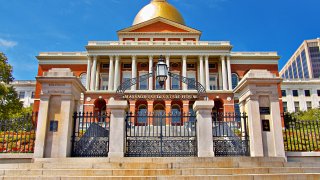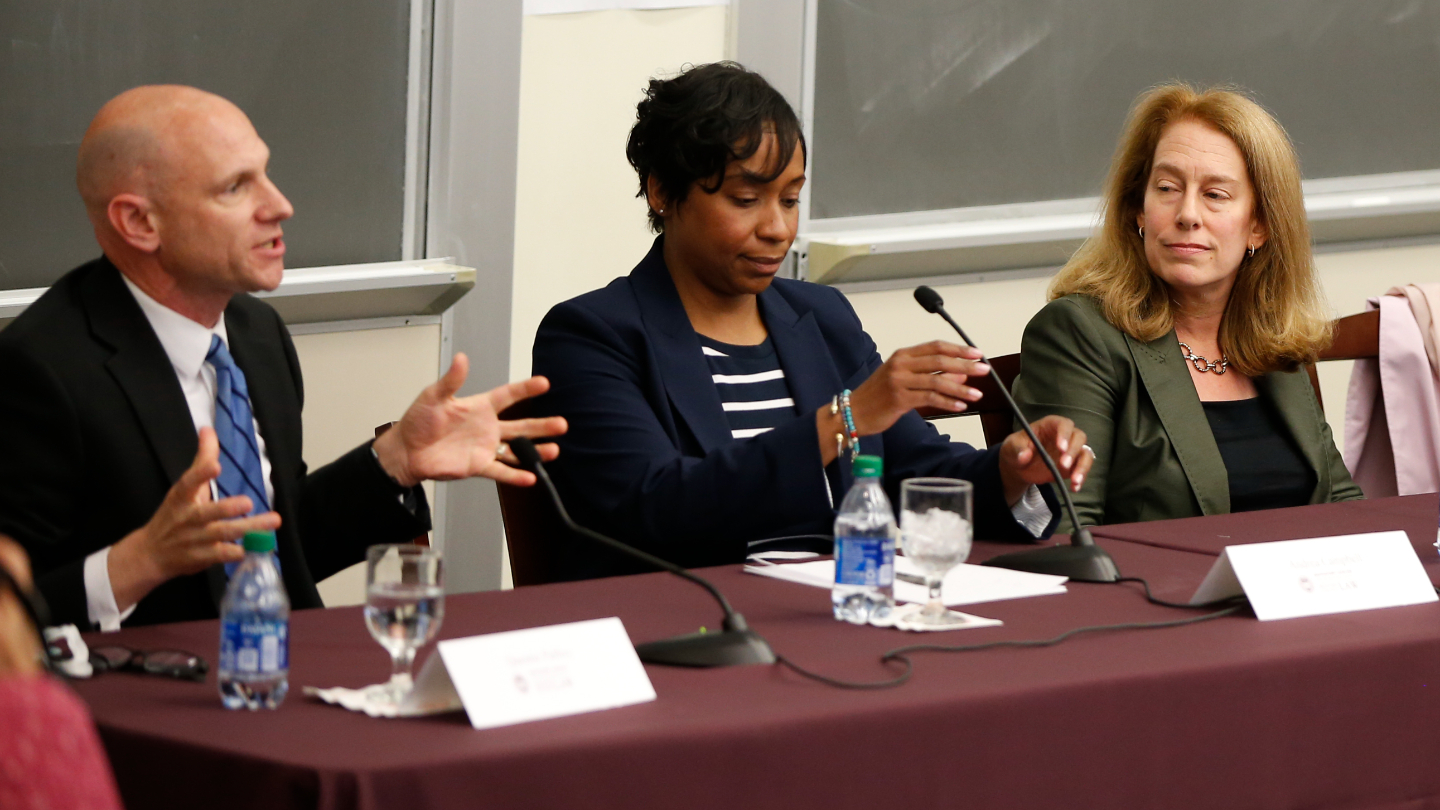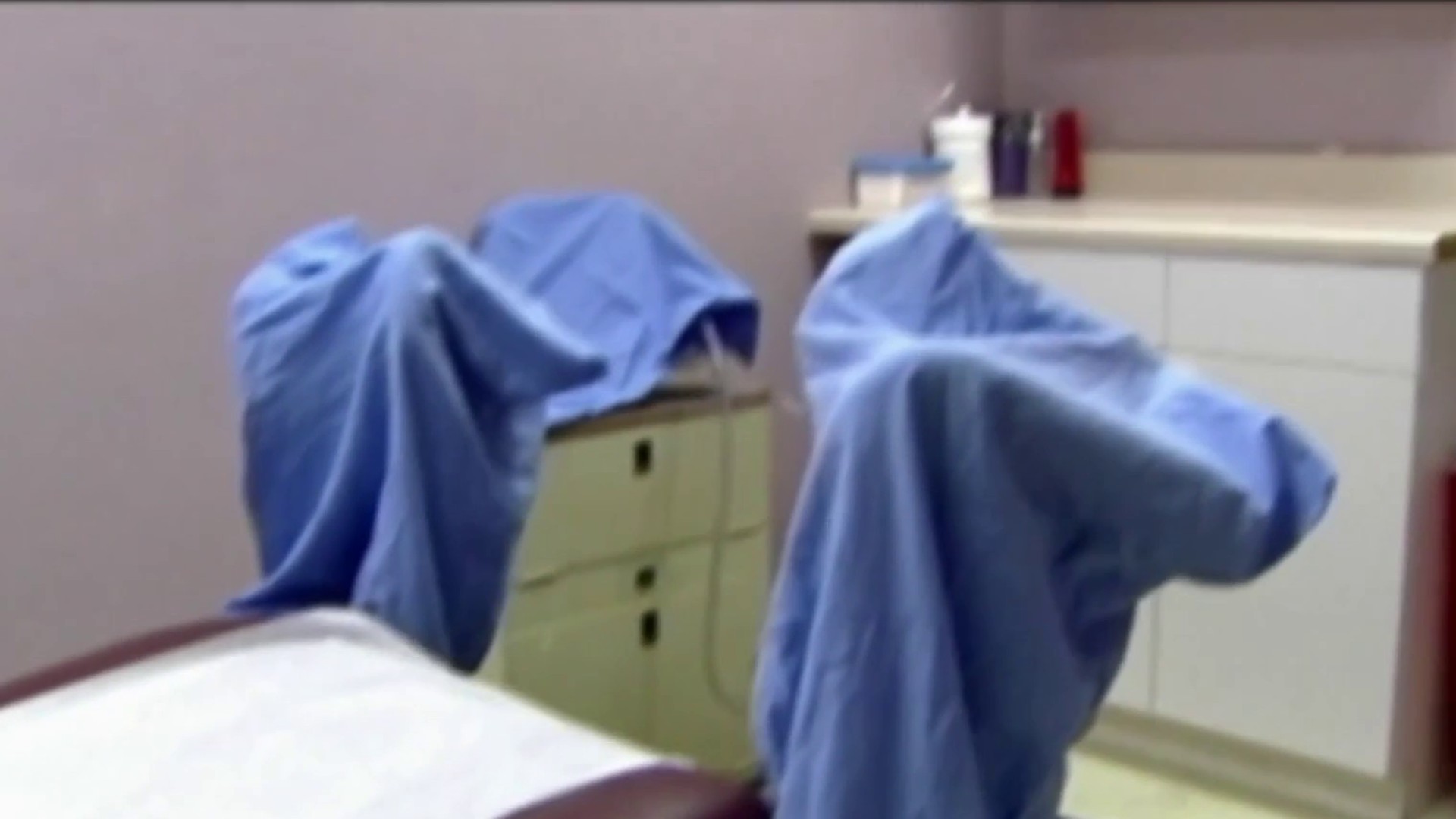
Massachusetts lawmakers are running out of time to move on a renewed push to ban nondisclosure agreements, which proponents of the legislation say can be used to silence victims of workplace misconduct with taxpayer dollars.
State Sen. Diana DiZoglio has pushed the issue for nearly five years, leading the Massachusetts Senate in January 2019 to unanimously ban NDAs. The legally binding agreements bar victims from speaking out or from filing a lawsuit.
Experts say nondisclosure agreements perpetuate inappropriate conduct and prevent transparency, but the executive offices of the governor and the state's House of Representatives have continued to allow them.
"Nondisclosure agreements should be banned in governmental proceedings and also in non-governmental proceedings," Boston-based attorney Mitchell Garabedian, who has represented victims in clergy sexual abuse cases, said in an email. "Such agreements are part of the cover up, continue to harmfully control the victim’s voice and feelings, help perpetuate inappropriate conduct and supervision and deny much needed accountability and validation. The secrecy of the ugly truth must end."
Get New England news, weather forecasts and entertainment stories to your inbox. Sign up for NECN newsletters.
The agreements are often used with employment termination and severance packages. DiZoglio argues that people can be manipulated and forced to sign the legal agreements, citing her own case of alleged sexual misconduct about 10 years ago. The Methuen Democrat said she was told she wouldn't receive severance pay from her job as an aide in the House of Representatives unless she signed the agreement for silence.
"Certainly not every circumstance of workplace abuse is going to necessarily be sexual harassment -- there are all types of harassing, discriminatory and abusive behaviors that can take place," DiZoglio said. "And taxpayer dollars should not be abused to cover up any of those potential misdeeds."
Last year, DiZoglio re-flied a bill that would ban nondisclosure agreements entirely in the public sector and in the private sector for issues of sexual harassment or sexual misconduct, unless the victim requests one. Similar legislation filed by DiZoglio died in committee over the last two sessions. The current bill was referred to the committee on Ways and Means in March.
Lawmakers have until Sunday to act on the bill before formal sessions end for the year, otherwise it would die in committee once again. The chairmen of the joint committee on Ways and Means did not respond to requests for comment on whether they would move on the legislation. Since DiZoglio is running for higher office, she won't be in the Senate to file again next session.
"This is the last chance. If we don't pass this in the next couple of days, that means that powerful politicians will be able to continue to use your tax dollars to cover up harassment, discrimination and abuse across state government," DiZoglio said.
The number of nondisclosure agreements issued across state government and the amount spent is difficult to track down.
Two state agencies responded to NBC10 Boston records requests with the amount of taxpayer funds spent on nondisclosure agreements dating back to the year 2010: The Executive Office of Technology Security and Services said it has issued nine agreements since 2015, amounting to a total of $255,298.81, while the Executive Office of Energy and Environmental Affairs said it found one settlement of $7,724.10.
The Executive Office for Administration and Finance and the Executive Office of Education said "there are no records responsive to your request." Other offices in the executive branch either did not provide records, amounts or did not respond to requests sent two weeks ago.
The office of State Auditor Suzanne Bump said it "does not possess or maintain" such records on nondisclosure agreements that involve workplace misconduct. In 2019, the auditor’s staff told the Boston Herald that they had three settlement agreements totaling to $39,466 with nondisclosure language, which they said did not involve allegations of sexual harassment.
DiZoglio, who is running for state auditor against former Massachusetts Department of Transportation Assistant Secretary Chris Dempsey, called on Bump three years ago to investigate the amount of tax-dollars spent on nondisclosure agreements, but Bump told the Herald at the time that it was not "feasible."
"How are we supposed to see accountability in a state if people responsible for investigating and auditing are unwilling to investigate," DiZoglio said. "If elected as state auditor, I will audit and investigate the abuse of taxpayer dollars that fund these hush agreements, potentially starting with the auditor's office."
A representative for Bump said that the state auditor "shares the concerns of Sen. DiZoglio" and agreed that NDAs "should not be used to buy the silence of abuse victims." However, Bump's office said an audit would require a review of the personnel files of all public employees who have signed NDAs in order to determine which ones were used in a case of sexual harassment, which is "not feasible."
Gov. Charlie Baker's office deferred to online records from the office of the Comptroller, which does not breakdown how much money is spent on nondisclosure agreements, but shows that more than $95.7 million was spent on settlements and judgements in Massachusetts since 2014. The House of Representatives has issued 33 nondisclosure agreements since 2010, according to House Speaker Ronald Mariano's office.
None were related to sexual harassment, according to the office, a claim that contradicts DiZolgio's experience.
"Mine absolutely did, as I've said before, and that just goes to show that there's no oversight or accountability regarding what these agreements are for," DiZoglio said. "Across state government, there's no documentation about the process that leads to a taxpayer-funded NDA being executed and being required to sign away the right to speak about potential abuses in the workplace."
The executive offices' "incomplete" responses to requests for information highlight a lack of documentation and procedure around using legal agreements for silence, DiZoglio said.
"There is absolutely no oversight regarding the abuse of taxpayer funded NDAs across state government. There's absolutely no accountability regarding why these agreements are being used, who is using them and how much of our taxpayer dollars go toward funding them," DiZoglio said. "The people have a right to know if their tax dollars are going towards covering up abusive behaviors in state government."



